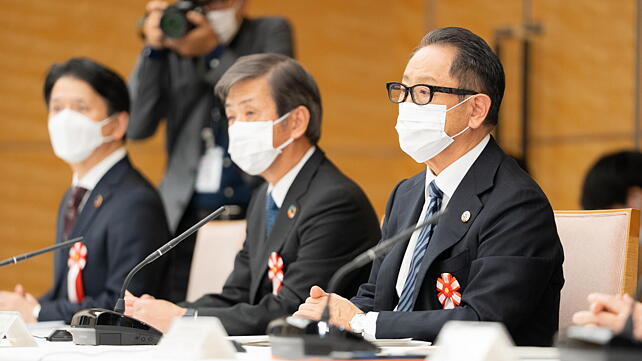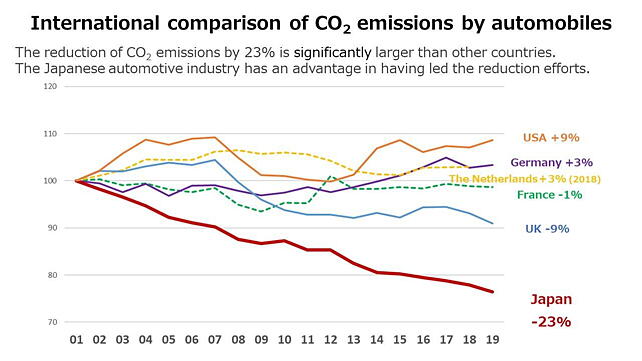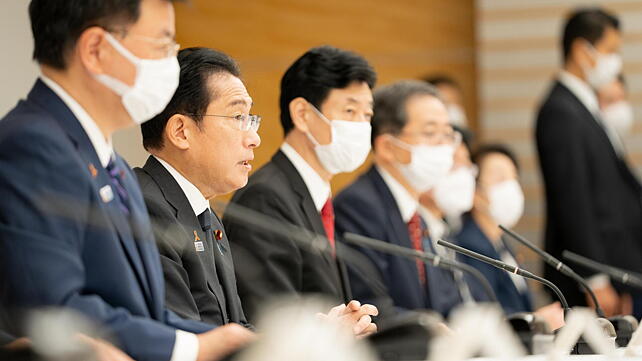
Akio Toyoda, President, Toyota Motor Corporation, has strongly reiterated that Japan “needs to follow its own path to reduce CO2 emissions that fully leverages our strengths in hybrids, mini vehicles, motorcycles, and hydrogen, rather than going all in on BEVs”.
He made these observations at a recent meeting between the Japanese government and Keidanren (Japan Business Federation) Committee on Mobility attended by Fumio Kishida, Prime Minister, Japan, and eight members of his cabinet. Toyota Times, the Toyota-owned media channel, has reported this on the automaker’s website.
The committee, in its turn, was represented by seven members including Toyoda, President and Chairman, Keidanren Committee on Mobility; Masakazu Tokura, Chairman of the Board, Sumitomo Chemical and Koji Arima, President & CEO, Denso.
Toyoda’s comments on other energy options beyond just battery electric vehicles is interesting and clearly indicates his company’s priorities in this space. While the buzzword in the global auto industry is electric, it is not as if this is the sole solution to cleaning up the air going forward.
Japan’s Unique Strengths
“Japan’s auto industry has continued to lead the world thanks to the strength of its production frontlines. I believe that political resources must be devoted to these areas where Japan’s strength lies,” said Toyoda in the meeting.
He added that the industry would continue working to further strengthen its frontline manufacturing by incorporating digital solutions and drawing on the expertise of new partners. “In doing so, I believe we have great potential to enrich people’s lives by solving social issues, including in rural communities, creating new value, and contributing more as a mobility industry,” said Toyoda.
According to him, the future benefits would be considerable. “We hope that the government will be bold in considering how to make the most of Japan’s strengths, while placing mobility at the centre of these policies,” he said.
Rather than solely relying on regulation to make changes, continued Toyoda, it would help if the government provided automakers with assistance, including an overhaul of the tax system, to “firmly support one of Japan’s core industries”. In the process, it “can continue working diligently to ensure that mobility development goes hand-in-hand with the pursuit of carbon neutrality”.
Weathering The Storm
Toyoda was of the view that Japan had maintained its global competitiveness so far thanks to a broad middle class, and the time had come for that competitiveness to be re-established.

The country had grappled with various crises, from the oil shocks of the 1970s to the trade frictions and soaring yen of the 1980s, followed by the collapse of the bubble economy and the rise of emerging nations in the 90s.
“And yet, the automotive industry has always stayed ahead of the times, as everyone has continued working diligently to overcome these crises and achieve sustainable growth,” he said. Similarly, as countries make efforts in the pursuit of carbon neutrality, Japan’s auto industry has led the world by cutting CO2 emissions by 23% over the past 20 years.
“We achieved that by drawing on our strengths across the full line-up – from mini vehicles to motorcycles and heavy-duty vehicles – and working to develop fuel-efficient technologies and expand our pioneering range of electrified vehicles,” said Toyoda.
During the current pandemic, the auto industry added 120,000 workers even as Japan’s economy shed 880,000 jobs overall. “The auto industry has a track record of consistently investing in and protecting the country’s manufacturing base, employment, and competitiveness on the world stage,” he added.
Critical Role Of SMEs
Moreover, while Japan as a whole was seeing “sluggish income growth and widening inequality”, the auto industry continued to distribute its gains among diverse stakeholders, including employees, shareholders, and suppliers. “By contributing to a virtuous cycle of growth and distribution, I believe the industry has helped to maintain a strong middle class,” said Toyoda.
Koji Arima, President & CEO, Denso said 90% of companies that make up Japan’s auto parts industry are small and medium-sized enterprises. Even if the auto industry evolves into a new mobility industry, “we believe that SMEs will remain the cornerstone of competitiveness”.
Moreover, in addition to carmakers and small and medium-sized suppliers, the auto parts industry is connected to a diverse network of partners, including those in the infrastructure, energy, materials, and logistics sectors, said Arima. According to him, collaboration “unbound by conventional frameworks” was crucial for the automotive industry to remain relevant in a new mobility society.

Mobility As Central Axis
“I believe the SMEs of our auto parts industry can contribute to cutting CO2 emissions by further honing and leveraging the strengths we have cultivated to date. To achieve carbon neutrality, it is also essential that every element of the supply chain, regardless of industry or size, is digitally integrated, and this is one area where government and business must work together,” added Arima.
Prime Minister Kishida, meanwhile, said the mobility sector must be a “central axis of new capitalism”. To achieve both growth and solutions to social challenges such as decarbonisation, Japan needed a “robust and advanced automotive industry at the core of its global business ambitions”.
The Prime Minister added that the auto industry was a central pillar of the economy and job creation in Japan. “As we stand at this turning point in history – with major transformations such as decarbonisation and digitisation and intensifying international competition, both between companies and regions – our public and private sectors must strive together for further growth in order to protect the country’s economy and jobs,” he said.
Also Read:
Toyota Teases Upcoming Innova Hycross